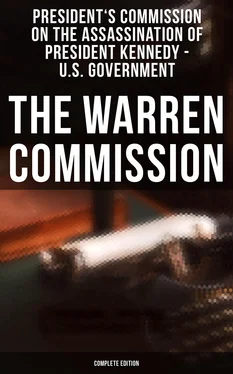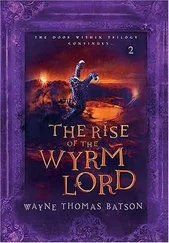Mrs. Oswald. If I lived in Leningrad, I had the right to work there. But if someone would come there from a village he would not have the right to work, because he was not registered and he would not be permitted to. But to move from a larger city to a smaller one, then they may register, such as Minsk.
Mr. Rankin. By register, do you mean that if you want to go to a place like Leningrad, you had to be recorded some way in the city?
Mrs. Oswald. Yes, that is, registered in the police department.
Mr. Rankin. And if you were not registered, they would not give you a job, is that what you mean?
Mrs. Oswald. Yes.
No, you would not get a job. There are people who want to come to Leningrad. The housing problem has not been solved.
Mr. Rankin. Can you tell us how you get registered if you would like to be registered in Leningrad from some other point?
Mrs. Oswald. First you must have relatives who might have some spare living space for a person. Sometimes people who have money buy that. You know money does a great deal everywhere.
Mr. Rankin. And then after you have shown that you have a place to live, do they register you as a matter of course, or do you have to have something else?
Mrs. Oswald. Not always. One has to have connections, acquaintances.
Mr. Rankin. Were you registered in Leningrad before you left there?
Mrs. Oswald. Yes, of course. But if I had spent one year not living in Leningrad, and were to return, I would not be registered.
Mr. Rankin. But since you were registered there, you could have found a position in some pharmacy or pharmaceutical work there, could you?
Mrs. Oswald. Oh, yes, of course.
Mr. Rankin. Then, can you tell us how you decided to go to Minsk instead of staying in Leningrad?
Mrs. Oswald. I was very sorry to leave Leningrad, but there were family circumstances.
What can one do?
It is not very pleasant to be a sty in the eye of a stepfather.
Mr. Rankin. So it is because you liked to leave your stepfather's home that you sought some other city in which to work?
Mrs. Oswald. Yes. I had no other place to live in Leningrad, and I did not have enough money to pay for an apartment.
I received 45 and I would have had to pay 30 for an apartment.
Mr. Rankin. Could you have gotten a job in Leningrad if you stayed there that would pay you so you could have an apartment?
Mrs. Oswald. Pharmaceutical workers received comparatively little, which is quite undeserved, because they have to study so long, and it is responsible work. Teachers and doctors also receive very little.
Mr. Rankin. Did you conclude that you could not get a job that would pay you enough to live in your own apartment in Leningrad, then?
Mrs. Oswald. If I had an apartment in Leningrad. I would have had to work overtime hours in order to be able to pay for it, because the normal workday is only 6½ hours, because they consider that to be hazardous work.
Mr. Rankin. Did you have a social life while you were in Leningrad?
Mrs. Oswald. What do you mean by social life?
Mr. Rankin. Did you have friends that you went out with in the evening, pleasant times?
Mrs. Oswald. An awful lot.
Mr. Rankin. So that except for the problem of your stepfather, you enjoyed it there?
Mrs. Oswald. Oh, yes, of course.
Mr. Rankin. Did you have any vacations while you were in Leningrad?
Mrs. Oswald. Yes. After working in Minsk for one year I received a vacation and went to a rest home near Leningrad.
Mr. Rankin. How long did you stay there on vacation?
Mrs. Oswald. Three weeks. Three weeks in the rest home, and one week I spent in Leningrad with some friends.
Mr. Rankin. Do you recall the name of the rest home?
Mrs. Oswald. No.
Mr. Rankin. Did you have to ask anyone in Leningrad in order to be able to leave there to go to Minsk, or you just go to Minsk and ask the people there to register you?
Mrs. Oswald. I simply bought a ticket and went to Minsk, to my uncle.
Mr. Rankin. And were you registered there then?
Mrs. Oswald. Yes.
Mr. Rankin. What kind of pay did you get when you worked in Minsk?
Mrs. Oswald. Forty-five, as everywhere.
Mr. Rankin. Was that per week?
Mrs. Oswald. No, that is a month. That is not America.
Mr. Rankin. Is that 45 rubles?
Mrs. Oswald. Yes.
Mr. Rankin. Per month?
Mr. Dulles. Old rubles or new rubles?
Mr. Rankin. Is that old rubles?
Mrs. Oswald. New rubles.
Mr. Rankin. What were your hours in this work?
Mrs. Oswald. 10 a.m., to 4:30 p.m.
Mr. Rankin. When you said this same pay was paid all over, did you mean to say that you got the same amount regardless of whether you were in a big city or a small city?
Mrs. Oswald. This is the pharmacists rate everywhere. Unless you work in a specialized sort of an institution, such as a military hospital—there the pay is higher.
Mr. Rankin. What was the nature of your work?
Mrs. Oswald. Preparation of prescriptions.
Mr. Rankin. Did you supervise the preparation of the prescriptions, or did you just put them up yourself?
Mrs. Oswald. I prepared them myself.
Mr. Rankin. Did you have a supervisor?
Mrs. Oswald. I was in charge of myself. If I was working at a table, I was responsible for it.
Of course every institution is in charge of a supervisor who does not prepare medications—he is only an administrator.
Mr. Rankin. How many days of the week did you work on this job?
Mrs. Oswald. Six days. Except if a holiday falls upon a weekday. Then I didn't work.
Mr. Rankin. Were these prescriptions prepared only for patients in the hospital?
Mrs. Oswald. Yes. Sometimes we prepared something for ourselves or for friends, or somebody would ask us.
Mr. Rankin. Did you pay anything to your uncle and aunt for staying there?
Mrs. Oswald. No. They had—they were well provided for, and my uncle wanted that I spend the money on myself.
Mr. Rankin. What was the name of this uncle?
Mrs. Oswald. Ilva Vasilyevich Proosakov.
Mr. Rankin. What was the nature of his work?
Mrs. Oswald. He works in the Ministry of the Interior of the Byelorussian SSR.
Mr. Rankin. Did he have something to do with lumbering?
Mrs. Oswald. He is an engineer. He is a graduate of a forestry institute. Technical institute.
Mr. Rankin. Is he an officer?
Mrs. Oswald. He was a colonel—a lieutenant colonel or colonel, I think.
Mr. Rankin. Did he have a nice apartment compared with the others?
Mrs. Oswald. Yes, very nice.
Mr. Rankin. Did he have a telephone in the apartment?
Mrs. Oswald. Yes.
Mr. Rankin. Were you supporting yourself during this period except for the fact you didn't pay anything for your room and board?
Mrs. Oswald. Yes.
Mr. Rankin. Did you save money?
Mrs. Oswald. No. I would receive my pay and I would spend everything in one day—three days tops.
Mr. Rankin. What would you spend it for?
Mrs. Oswald. First all the necessary things which I had to buy—shoes, an overcoat for winter. It is cold there, and, therefore, you have to wear warm clothes.
Mr. Rankin. Was your uncle a member of the Communist Party?
Mrs. Oswald. Yes, he is a Communist.
Mr. Rankin. Did you belong to any organizations during this period in Minsk?
Mrs. Oswald. First I was a member of the Trade Union. Then I joined the Comsomol, but I was discharged after one year.
Mr. Rankin. Do you know why you were discharged?
Mrs. Oswald. I paid my membership dues regularly, and at first they didn't know who I was or what I was, but after they found out that I had married an American and was getting ready to go to the United States, I was discharged from the Comsomol. They said that I had anti-Soviet views, even though I had no anti-Soviet views of any kind.
Читать дальше












